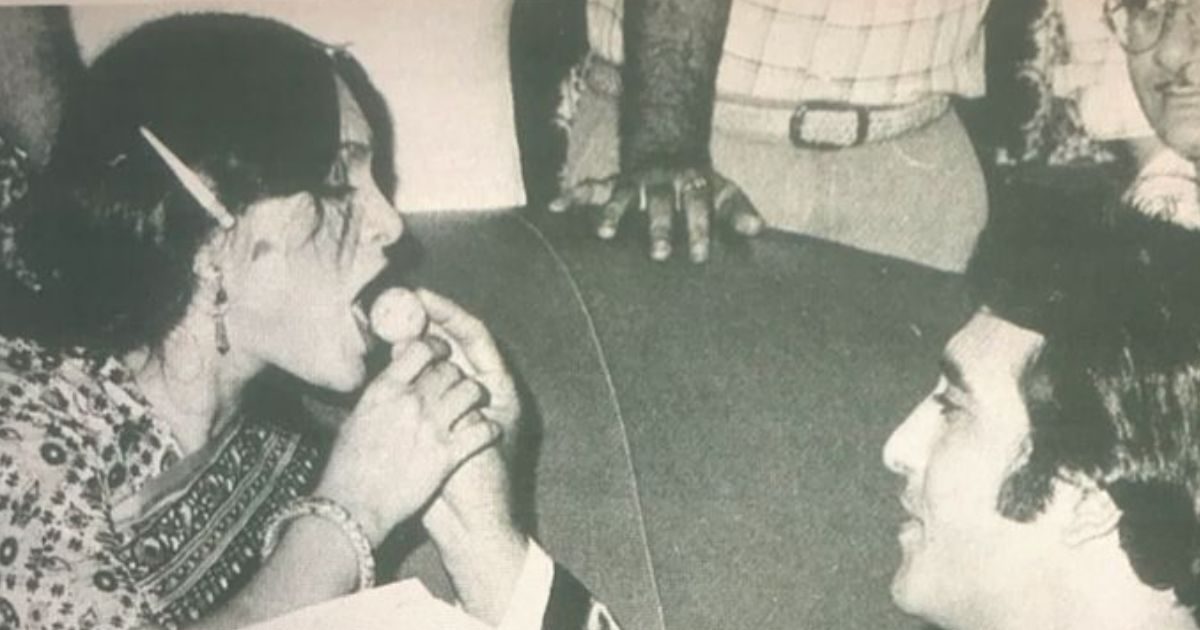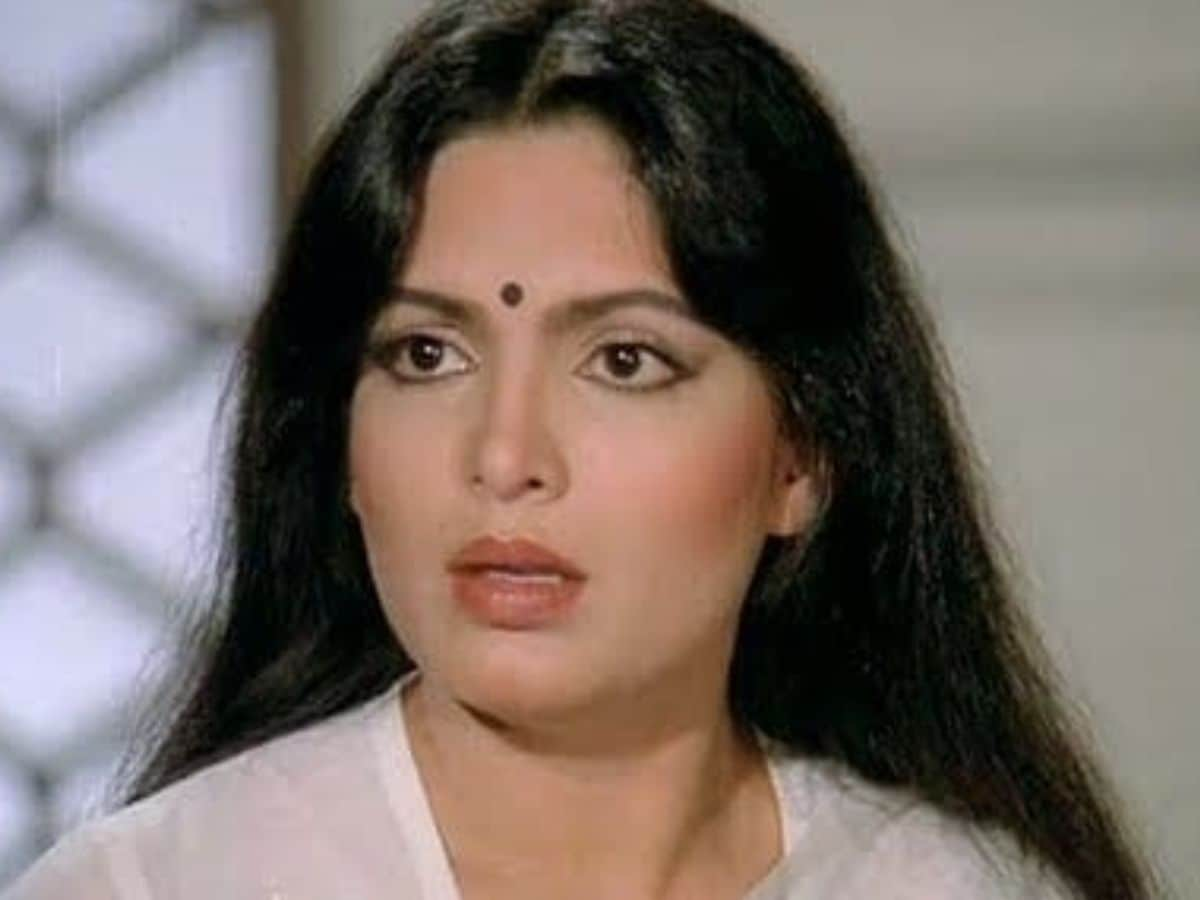She was one of the most glamorous faces of Bollywood. In the 1970s and 80s, Parveen Babi ruled the silver screen with her bold looks, western fashion, and strong screen presence. She was the first Indian actress to be featured on the cover of Time magazine. Her popularity was so high that her presence alone could guarantee the success of a film.
Parveen acted alongside top stars like Amitabh Bachchan, Shashi Kapoor, and Feroz Khan. But while her reel life was filled with fame and beauty, her real life was full of emotional pain, heartbreak, and health struggles. Her final years were marked by isolation, mental illness, and a shocking end that Bollywood has never truly forgotten.
Let’s take a deeper look into the journey of Parveen Babi – the icon who had it all, yet lost everything.
The Rise of a Bold and Beautiful Star
Parveen Babi was born on April 4, 1954, in Junagadh, Gujarat, into a noble Pashtun Muslim family. Her full name was Parveen Wali Mohammad Ali Khan Babi. She was born 14 years after her parents’ marriage and lost her father at the age of just five. Raised by her mother, Parveen had a well-educated background and studied at St. Xavier’s College, Ahmedabad.
In her college days, Parveen was already bold, confident, and stylish. She entered the world of modelling and quickly caught the attention of filmmakers. Director B.R. Ishara saw her at a shoot and decided to cast her in a lead role. From that moment, her journey to stardom began.
With her sharp features, modern fashion, and fearless attitude, Parveen became the face of modern Bollywood. Unlike many actresses of her time, she didn’t fit the traditional image of a shy, saree-clad heroine. She wore western outfits, smoked on-screen, and spoke fluent English – redefining the look of a leading lady.
A Star Who Dared to Be Different
Parveen was not just a pretty face. Her roles in films like Deewaar, Namak Halaal, Amar Akbar Anthony, and Kaala Patthar proved that she had talent and screen presence. She stood tall among male superstars and shared equal space in films.

She became a fashion icon, representing a new era of independent Indian women. Her chemistry with Amitabh Bachchan in many blockbusters became legendary. Yet, behind the camera, Parveen was struggling with deeper issues.
Heartbreak and Loneliness Behind the Fame
Parveen Babi’s love life was as dramatic as her films. She fell in love three times, but each relationship left her heartbroken.
First came Danny Denzongpa, her co-star and a rising actor. Though their relationship was serious, it did not last.
Then came Kabir Bedi, who was also trying his luck in Hollywood. Parveen followed him abroad, but once again, the relationship ended in disappointment.
Finally, her most talked-about relationship was with Mahesh Bhatt, who later directed the semi-biographical film Woh Lamhe, inspired by their time together. Mahesh tried to support her during her mental health struggles, but he too eventually had to walk away as things worsened.
Parveen’s pain is often reflected in her public behaviour. She began to withdraw from social life, missed film shoots, and made shocking statements in the media. She even accused powerful people in the industry, including Amitabh Bachchan, of plotting against her – claims that were never proven and deeply damaged her professional relationships.
The Silent Battle With Mental Illness
In the early 1980s, Parveen was diagnosed with paranoid schizophrenia, a serious mental health condition that causes delusions and extreme fear of others. She refused to accept her illness and refused treatment.
At one point, she was admitted to a psychiatric facility in the United States. After returning to India, her behaviour became more unpredictable. She believed people were trying to kill her, and she lived in constant fear. She avoided film sets, friends, and even family.
She became more isolated with time and moved into a flat in Mumbai’s Juhu area. In her last few years, she stayed indoors, away from the media, public, and even close ones.
A Painful and Lonely Death
Parveen Babi passed away on January 20, 2005, at the age of 50. Her body was found in her flat, three days after she had died. She had been living alone, and nobody knew she was gone until neighbours noticed milk and newspapers piling up at her doorstep.
The post-mortem revealed that she died due to multiple organ failure and possibly starvation, as she had not eaten for several days. Some reports also said she had gangrene in one leg, which left her in a wheelchair.
The woman who once walked the red carpet with style had now been reduced to a tragic, forgotten figure.
Her Final Wish That Remained Unfulfilled
In her last days, Parveen Babi had reportedly converted to Christianity and had expressed the wish that she should be given a Christian burial. She had even written it in her will. But when her body was discovered, her distant relatives stepped in and performed the last rites according to Muslim customs.
Her final wish was ignored.
Parveen had no close family members to claim her, and the woman who once lived a life of fame, wealth, and beauty was buried quietly, without fulfilling her desire.
How Bollywood Reacted to Her Death
When the news of her death came out, Bollywood was shocked. Many actors and filmmakers expressed regret at how Parveen had been left alone in her final years. Mahesh Bhatt said in an interview that her death was a result of society’s failure to care for the mentally ill.
Several stars visited her funeral, but the question still remains – why was a star of her stature left to suffer alone?
Parveen Babi’s Legacy: A Life of Glamour and Tragedy
Even today, Parveen Babi is remembered for her beauty, boldness, and unique charm. She changed the way Indian actresses were seen and gave a modern face to Bollywood’s heroines. But her life also highlights how mental illness and emotional trauma can affect even the brightest stars.
Parveen’s story is not just about stardom or tragedy. It’s a reminder that behind every celebrity, there is a human being – one who needs love, care, and understanding.
Her journey from the red carpet to loneliness teaches us that mental health should never be ignored and that fame can never replace emotional support.


